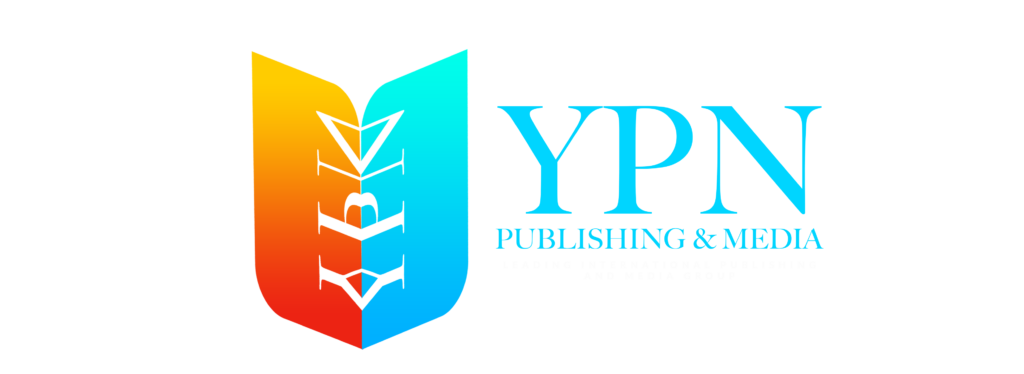Breaking into the publishing world can feel overwhelming, especially when top publishers keep the industry’s inner workings a mystery. Many aspiring authors face rejection, struggle with confusing contracts, and find it challenging to market their books effectively. Understanding how the publishing industry operates can give you a significant advantage and increase your chances of success.
Rejections are a normal part of the process, even for bestselling authors. Many well-known writers faced multiple rejections before securing a deal. The key is persistence, refining your pitch, and submitting to the right publishers or agents. A well-crafted query letter and a compelling book proposal can make a big difference.
Publishing contracts can be complex, often containing clauses that may limit an author’s rights or earnings. Many first-time authors unknowingly sign contracts that are not in their best interest. It’s essential to have a literary attorney or an experienced publishing consultant review any contract before signing. Understanding royalty structures, rights management, and distribution terms can prevent future regrets.
Marketing is often left to the author, even in traditional publishing. Many new writers assume that getting a book deal means the publisher will handle promotion, but in reality, publishers prioritize authors with established audiences. This means that even traditionally published authors must actively market their books through social media, email lists, podcast interviews, and other promotional efforts. Without a solid marketing strategy, even a great book can go unnoticed.
Self-publishing has become a viable and often more profitable alternative. While traditional publishing offers prestige and wider bookstore distribution, self-publishing gives authors full control over pricing, royalties, and creative direction. Many indie authors earn more than traditionally published authors because they retain a larger percentage of sales and can publish on multiple platforms without restrictions.
Building an author platform is crucial for success in today’s publishing world. Publishers look for authors who already have an engaged audience. Whether pursuing traditional or self-publishing, growing an email list, establishing a social media presence, and consistently sharing valuable content can increase visibility and credibility. An engaged audience translates into higher book sales and better publishing opportunities.
If you want to get published in 2025, you need to think beyond just writing a book. Understanding how the industry works, taking control of your marketing, and building a strong author brand will position you for success. Whether you choose traditional publishing or self-publishing, knowledge and strategy will be your biggest advantages.
1. Your Manuscript Alone Isn’t Enough
Many writers believe that a well-written book is all it takes to get published. In reality, publishers want more than just a great manuscript—they want marketability. Before accepting a book, they assess whether the author has a strong personal brand, an existing audience, and a marketing plan.
How to Fix It:
- Build an engaged online presence through social media, blogs, or newsletters.
- Start growing an email list to connect directly with potential readers.
- Position yourself as an expert in your genre or niche before submitting your manuscript.
2. Traditional Publishers Expect You to Market Your Own Book
Gone are the days when publishers handled all book promotions. Unless you’re a bestselling author, most of the marketing responsibility falls on you. If you’re not prepared to push your book, your sales will likely be disappointing.
How to Fix It:
- Develop a strong pre-launch and post-launch marketing plan.
- Use platforms like TikTok, Instagram, and LinkedIn to create buzz.
- Leverage email marketing and collaborations with influencers in your niche.
- Consider hiring a PR agency or a book marketing expert to maximize exposure.
3. Rejection Doesn’t Mean Your Book Isn’t Good
Many authors face multiple rejections and assume their writing isn’t good enough. But rejection often has more to do with market trends, publisher needs, or the timing of your submission than the quality of your book.
How to Fix It:
- Research publishers that align with your genre and book’s theme.
- Be persistent—J.K. Rowling’s Harry Potter was rejected multiple times before becoming a global success.
- Consider self-publishing if traditional routes aren’t working. Many self-published authors now earn six figures.
4. Book Advances Aren’t Always as Lucrative as They Seem
Many writers dream of getting a big advance, but what publishers don’t tell you is that advances are loans against future royalties. If your book doesn’t sell well, you may never earn beyond the advance.
How to Fix It:
- Negotiate a fair advance and understand your royalty rates before signing.
- Focus on long-term earnings rather than just the upfront payment.
- Explore alternative income streams like audiobooks, speaking engagements, and online courses.
5. Self-Publishing Can Be More Profitable Than Traditional Publishing
Traditional publishing offers credibility, but self-publishing allows you to keep up to 70% of royalties and retain full creative control. Many authors who self-publish earn more than those who go the traditional route.
How to Fix It:
- Use platforms like Amazon KDP, IngramSpark, or Draft2Digital to self-publish your book.
- Invest in professional editing, cover design, and formatting to ensure your book competes with traditionally published ones.
- Learn about Amazon’s algorithms to boost visibility and sales.
6. Audiobooks and E-books Are the Future
The demand for physical books remains strong, but e-books and audiobooks are growing exponentially. If you’re not considering these formats, you’re leaving money on the table.
How to Fix It:
- Turn your book into an audiobook using platforms like ACX or Findaway Voices.
- Optimize your e-book for Kindle Unlimited to reach more readers.
- Offer limited-time discounts or free promotions to increase visibility.
7. Networking is Just as Important as Writing
The publishing industry thrives on connections. Many authors secure book deals through networking rather than cold submissions.
How to Fix It:
- Attend publishing conferences and book fairs to connect with industry professionals.
- Join writing communities and engage with literary agents and editors on social media.
- Consider working with a literary agent who can pitch your book to top publishers.
Final Thought
Getting published in 2025 requires more than just writing a compelling book. With millions of titles flooding the market each year, standing out demands a deep understanding of the publishing industry, a strong marketing strategy, and the ability to adapt to changing trends. Many aspiring authors assume that talent alone will secure them a book deal or guarantee sales, but the reality is that success comes from preparation, persistence, and strategic planning.
Traditional publishing offers prestige, professional editing, and bookstore distribution, but it is highly competitive. Securing a literary agent and landing a publishing deal requires a polished manuscript, a strong query letter, and a marketable book concept. Even with a traditional deal, authors must be prepared to take an active role in marketing, as publishers prioritize books with built-in audiences. Understanding contracts, royalty structures, and distribution rights is crucial to making informed decisions that protect long-term earnings.
Self-publishing provides greater creative control and higher royalty percentages, but it also requires authors to handle everything from book production to marketing. Platforms like Amazon Kindle Direct Publishing, IngramSpark, and Draft2Digital make it easier than ever to publish independently, but success depends on more than just uploading a manuscript. Writing a marketable book, optimizing keywords for discoverability, and investing in professional editing and cover design are essential steps to competing with traditionally published books.
Marketing is the driving force behind book sales, regardless of the publishing path. Authors must build a personal brand, grow an engaged audience, and utilize multiple promotional channels. A strong online presence through social media, email marketing, and content creation can significantly boost visibility. Leveraging book launch strategies, securing early reviews, and running targeted ads can further increase sales and reader engagement.
The publishing industry continues to evolve, and adaptability is key to long-term success. Trends in digital publishing, audiobook consumption, and AI-driven content creation are shaping the future of bookselling. Staying informed about industry changes and continuously refining strategies will give authors a competitive edge in an increasingly crowded market.
Becoming a successful author in 2025 requires more than just writing a book. Whether pursuing traditional publishing or self-publishing, the most successful authors are those who invest in their craft, understand the business side of publishing, and commit to ongoing marketing and audience building. With the right approach, preparation, and persistence, breaking into the industry and achieving long-term success is entirely possible.
Want expert insights on writing, publishing, and book marketing? Sign up for YPN Publishing & Media Group today and take your author journey to the next level!



